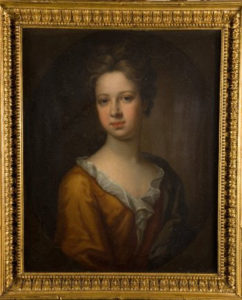Megan Krempa approaches her studies with a critical mindset.
“If I’m in a class and I don’t see any women, or marginalized gender, or sexuality or race, I’m just like, ‘but…they’re there!’” she says.
In the summer of 2019, Megan, now a fourth-year student in the History of Science and Technology Program (HOST), completed a brief student assistantship for the department. Her work, to identify and suggest ways the HOST professors’ syllabi could be made more diverse, fit perfectly with the perspective Megan was already bringing to her classes—that the established literature on a subject is often representative of historical attitudes of prejudice. As a result, contributions made by those who have historically been marginalized by society are often absent from course syllabi, an omission that perpetuates the perception that their contributions were somehow inferior or that such contributions were never made in the first place.
“So much of my work in my HOST classes in previous years has been trying to push against the grain. I never really want to write about the easy stuff—and by “easy stuff” I just mean stuff that’s already been written about. You know?”
This past summer, Megan had the opportunity to further explore how King’s syllabi could be made more diverse–and on a larger scale as one of two Curriculum Research interns—roles funded through the Government of Canada’s Magnet Student Work Placement Program. Building on her previous experience, Megan focused on the HOST program, “ … trying to find sources that expanded the canon of underrepresented voices, and people that are not traditionally discussed in classes.”

An 18th century portrait of Elizabeth Tollet.
In the course of her research, Megan came across a 2002 paper by Dr. Patricia Fara, Emeritus Fellow of Clare College Cambridge. The paper, “Elizabeth Tollet: A New Newtonian Woman,” was Megan’s introduction to poet Elizabeth Tollet (1694 to 1754), an English woman with a talent for science and mathematics. Her poetry gives expression to everything from the complex scientific arguments then being put forth by Sir Isaac Newton (who knew Tollet’s poetry and praised it) to the frustration she felt at the restrictions 18th century society placed on women’s freedom and potential.
Tollet was exactly the sort of individual Megan was trying to find.
Upon referring the paper to HOST faculty Dr. Stephen Snobelen—whose research focuses on Newton—Megan learned that Dr. Snobelen and Dr. Fara were already in contact.
“[Dr. Snobelen] had been corresponding with her, coincidentally, right before I emailed him. And then he started chatting with Patricia [Fara] and Patricia said that she had a new podcast about women in science and that she was interested in the fact that I was doing this kind of work.”
As a result, Dr. Fara invited Megan to be a part of episode 13 of her podcast, Women of Science & Music, entitled A Towering Mathematical Poet.
Hosted by British performer, composer and director Frances M. Lynch, the episode includes contributions from Elelia Farro, a present-day poet from Essex, England, where Tollet lived, as well as Dr. Fara and Megan.
Discussing the research that brought Tollet to her attention, Megan states on the podcast, “There are all of these interconnected histories, and there are all of these important women who have always existed in all of these different places … poets who were often scientists but they don’t fit either mold entirely; and so then people don’t know how to talk about them.”
Dr. Fara provided further context, noting that “there’s a strong history of poetry in science.” And she points out, “Isaac Newton himself couldn’t be bothered to explain his theories to anybody; but women including Elizabeth Tollet could understand what he’d written and they were very good at communicating it.”
Asked if poetry is something that has figured in her own life over the years, Megan hesitates.
“Poetry has … always been something I feel has passed me by. It’s always been something that I haven’t really delved into.” Nevertheless, Megan admires Tollet’s poem Hypatia, which uses the story of Anne Boleyn’s final days in the Tower of London as a framework to decry the lack of rights women then endured.
“Hypatia is … so lamenting and … you could see somebody writing it now, even, if they felt shut out of science. So I really enjoyed reading that poem.”
Not only has Megan’s work meant that Tollet now has a chance of being included on the syllabus of HOST courses, it has affirmed Megan’s instinct that such material is there to be found, for those who are willing to look for it.
“Doing this kind of work has made me realize how much stuff is out there…. I totally understand—a lot of the time it’s easier to stick with the script, and [this research] takes a lot of work—which is why I’m glad that there was this position. Hopefully the work that we did will enable professors to … look at a database and think ‘Ok, this one looks kind of interesting let me do some research on this person.’”
Listen to Women of Science & Music, Episode 13: A Towering Mathematical Poet.
Banner photo by Carsten Frenzl

